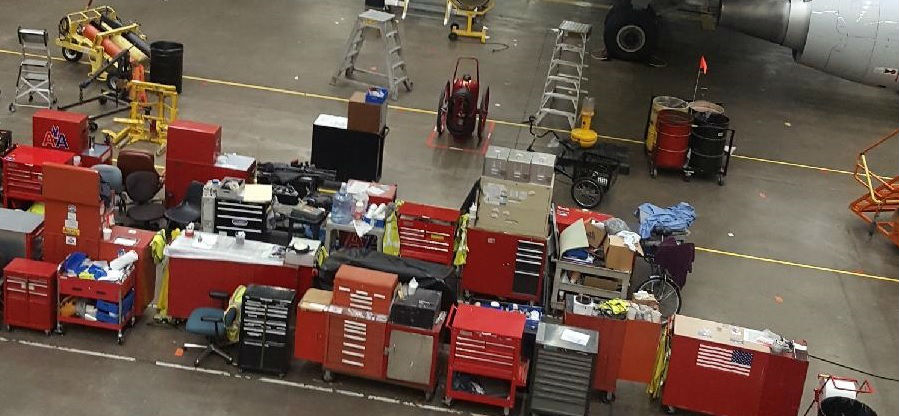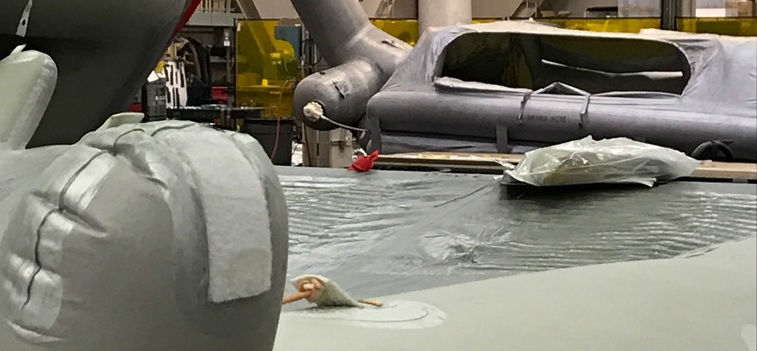|
MARIJUANA AND DERIVATIVES: WHAT ARE THE
AEROMEDICAL IMPLICATIONS?
by Michael A. Berry, MD
This article was originally published in the FAA Safety Briefing magazine. The Federal Air Surgeon's office has received a number of inquiries about marijuana due to the recent increase in the number of states around the country that have approved its use for medical and recreational purposes. Specifically, airmen are concerned about the safety of cannabidiol (CBD) oil use and how such use impacts an airman's medical certificate. Be aware that federal law - not
state law - governs FAA medical and pilot certification.
First, we should note that commonly used terms within the context of marijuana can be confusing. The maniana or cannabis plant contains more than 4u different chemicals and so cannabinoid compounds, all of which are absorbed when the whole leaf is smoked or ingested. The compound responsible for the euphoric, mind-altering effect is tetrahydrocannabino (THC). Although the use of cannabis is legal for medical and/or recreational use in many states, the United States Drug Enforcement Agency (DE) continues to classify the whole cannabis plant as a Schedule I controlled substance, which is defined as "drugs with no currently accepted medical use and a high potential for abuse." The U.S. Department of Transportation (DOT) drug test includes THC, and its
presence at defined levels constitutes a positive drug test. More recently, interest has grown in other compounds derived from the cannabis plant that may have positive health benefits, but without the mind-altering features of THC. One such compound being widely marketed is CBD oil. In 2018, the FDA announced the approval of Epidiolex (cannabidiol), purified pharmaceutical grade CBD extract from the cannabis plant, for the treatment of seizures associated with two rare and severe forms of epilepsy. As an FDA approved medication, it is subject to strict quality control. In other words, you know what you are getting. Commercially avallable CBD, by contrast, is not regulated and may be contaminated with a variety of substances, most significantly. THC. Product labels are often inaccurate. Although most CBD products claim to have under 0.3 percent THC, they could contain high enough levels of THC to make a drug test
positive. Use of CBD oil is not accepted as an affirmative defense against a positive drug test. Furthermore, despite legalization in some states, it remains uncertain whether marijuana has therapeutic benefits that outweigh its health risks. There is evidence that marijuana adversely affects brain function both acutely and chronically, especially in younger individuals. It is generally agreed that currently available marijuana products are more potent than those used in older research, which casts doubt on the reliability of that research. We need to understand much more before considering the use of mar uana and its derivatives for airman certificate holders. Please also be aware that no
special issuances have been granted for conditions treated with medical marijuana. * Dr. Michael A. Berry is the Federal Aviation Administration's Federal Air Surgeon in the Office of
Aerospace Medicine in headquarters, Washingion, D.C
<<back to top
Use of CBD products
A 2017 study found that about 7 out of 10 CBD (cannabidiol) products did not contain the amount of cannabidiol stated on the label and about 1 in 5 contained THC (tetrahydrocannabinol). Doses aren’t standardized across brands and some recommend higher doses than others. In addition, hemp-derived CBD oils aren’t FDA regulated and the advertised THC levels of products can be unreliable. As a result of varying dose recommendations and uncertain THC levels, taking CBD oil comes with a risk of a non-negative test result. Because CBD oil is unregulated you can never be 100% sure what you’re getting in your product.
Several companies have been reported providing “low THC” CBD oil, but when the product is tested it is not low in THC. If the product contains THC, even hemp-based products that are low THC, then marijuana can remain in your system. Detection windows for THC can vary on several factors, including a person’s weight and frequent use. Marijuana can show positive on a urinalysis for 30 days.
CBD oil extracted from hemp is not supposed to have any more than .3 percent of THC. However, it’s not uncommon for sellers to mislabel their products as THC-free hemp when in reality, it’s a low-quality oil extracted from marijuana, which does contain THC. One study discovered that almost 70 percent of the CBD products sold online were not labeled properly, causing potential serious harm to its consumers.
The reason for this widespread mislabeling is that CBD products are not strictly regulated by the FDA. DOT testing does not check for CBD compound, but it does check for THC. CBD is considered a supplement and it’s unregulated, so you really don’t know what amount of THC the products contain. The DOT testing has no way of determining if the THC failure was from drug use or supplement use.
References:
https://www.webmd.com/mental-health/addiction/news/20190809/pure-cbd-wont-make-you-fail-a-drug-test-but#1
https://www.cnet.com/news/can-cbd-make-you-fail-a-drug-test/
https://www.consumerreports.org/cbd/can-you-take-cbd-and-pass-a-drug-test/
https://www.fda.gov/consumers/consumer-updates/what-you-need-know-and-what-were-working-find-out-about-products-containing-cannabis-or-cannabis
|









